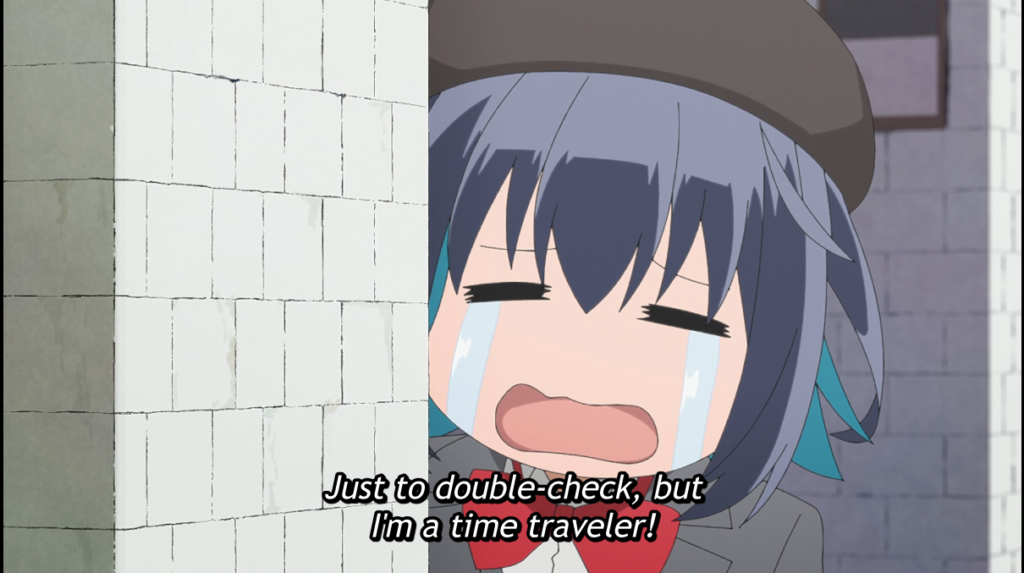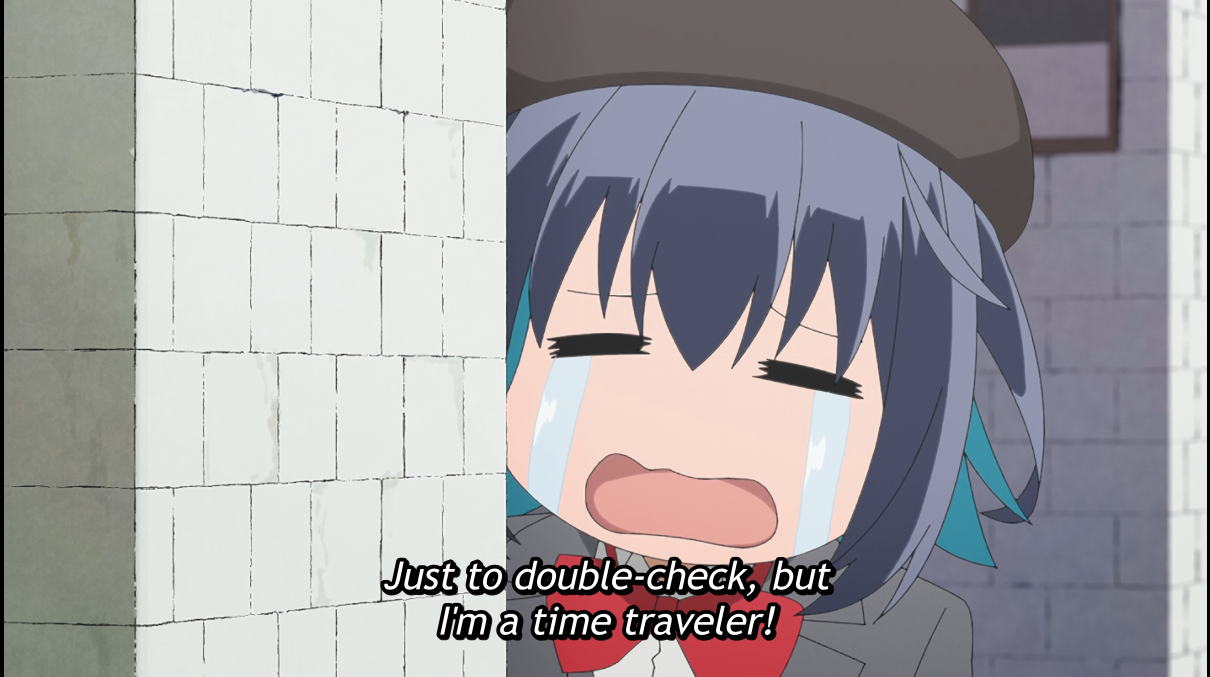Anime Review: 16bit Sensation: Another Layer
In 2023, Konoha Akisato is an aspiring illustrator who wants to break into the world of bishoujo (“pretty girl”) games. She’s a huge nerd on the subject, with an encyclopedic knowledge of the field. Sadly, the only job she could get related to computer games is “color fill” at Blue Bell Games, a company that makes cheap shovelware phone games, heavy on the subject of MILF hypnosis. Ew. Just once, Konoha would like to exercise her creativity and work on a good game!

But hey, it pays enough to keep her in a tiny apartment in Akihabara, Japan’s otaku center. One day, Konoha finds one of those odd hole in the wall stores that wasn’t there yesterday. The granny that runs it seems unaware that her inventory contains many classic bishoujo games, but likes hearing her young customer gush about them. When Konoha returns later, the shop is abandoned, but there’s a bag of games left for her. And when Konoha opens one, she’s suddenly in 1992!
Despite the many differences between the two time periods, the Akihabara of the past is a wild enough place that her odd hair and clothing spark little comment. After wandering around a bit, Konoha gravitates back to her workplace, discovering that in this past it’s occupied by a startup game company named Alcohol Soft. Two of the young women who work there take pity on the cold and lost teenager and bring her inside, to the disgust of middle school programming prodigy Mamoru Rokuda, who has been dragooned into this job because his father is the owner/manager.
The advanced technology our heroine brought back with her doesn’t work because she forgot to charge it. Konoha helps out with Alcohol Soft’s latest game a bit before shooting back to the present day. Soon, she’s going back and forth, learning about the history of producing bishoujo games. However, it turns out time travel comes with dangers…
This animated series adapts the 16bit Sensation manga, but instead of the slice of life work comedy of the original, it’s turned into a science fiction comedy with a bit of thriller towards the end. The original main character becomes a supporting character in this version.
Good: We get interesting demonstrations of how computer games were made back in the early 1990s, and various ways of overcoming technical problems. The art is quite nice and there are some interesting ideas, including the altered future that Konoha creates as a side effect of her meddling.
While the series briefly teases the possibility of a romantic relationship between Konoha and Mamoru, that’s not the trajectory their friendship ends up on due to among other things Mamoru aging while Konoha apparently does not. I like this outcome better.
Less good: Konoha has a childish way of speaking, and often emits high-pitched reactions when she’s shocked, happy or upset, which happens a lot. It’s annoying. She’s also not a very inquisitive person outside of her special interests, so we see little about how the Japanese culture and mores differs between the two centuries.
Outside of Konoha and Mamoru, the characters are kind of shallow and don’t get much development, which hindered my involvement when the thriller elements showed up in the last few episodes.
Odd: Don’t expect any clear explanation of the mechanism or motivation behind the time travel. Are there aliens? Maybe, they don’t explicitly say they are, but they’re not humans, either.
Political: The last couple of episodes are very much “A.I. should assist people, not be a substitute for creativity.” American companies investing in Japanese ones to take over their assets is depicted as a menace.
Content note: Bishoujo games tend to have a high amount of erotic content, often going into outright soft porn. This is mentioned, particularly in scenes where they’re adapting a game to a wider audience, but the most we see on screen is girls in skimpy bikinis. One character smokes in the workplace, and alcohol shows up in a few scenes. Teen audiences should be okay with this material.
Overall: This is a slight but enjoyable series. Recommended to science fiction fans who want to learn more about 1990s computer game design and are okay with not thinking about plot holes too hard.

